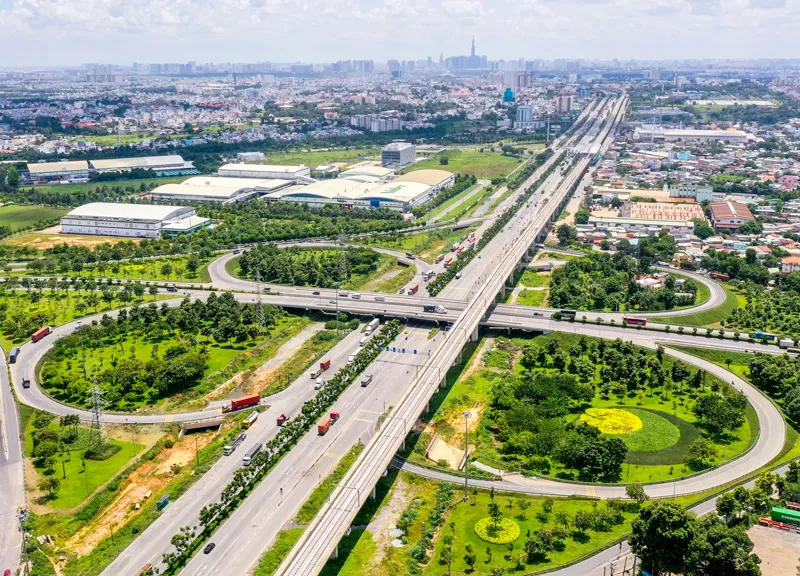
The Resolution will aim to support Ho Chi Minh City in improving the effectiveness and efficiency of its present state administrative units, and allow local governments to bring about an effective and functional administrative system in its place. The Resolution offers a clear plan for Ho Chi Minh City to become a major center of culture, education, e-commerce and human resource training, science and technology, and a modern-day new generation model of urban e-governance on par with any developed country.
Good model of e-governance
The Resolution calls for a new model of urban e-governance in Ho Chi Minh City that will aim to streamline the current administrative system, give more autonomy to grassroots level government officials, simplify administrative procedures, and lay high emphasis on promoting a modern day e-government with all the required facilities. The Resolution also calls for providing greater autonomy to authorities in wards, districts, and municipalities, as then officials will be able to execute plans and strategies without delays that are otherwise caused when seeking the required permission from higher authorities.
Already in the last few years, Ho Chi Minh City had started to decentralize the district administration into separate areas of housing, fee collection, documentation in births and deaths, and licensing of services, to better serve the local population. This process initially brought in many advantages for the people. However, it also provided a platform for local officials to misuse power, and harass and intimidate people. Officials made their own rules in the collection of market fees, pavement fees, real estate measurement fees, online study of children fees, which all made it very difficult for the local people.
Since the People's Committees in wards and districts have much high-yielding power as well as access to the local budget, this was difficult to counter or avoid. Hence, to do away with such bureaucracy, the Resolution will work towards the removal of district and ward level People's Councils. This move will make it easier for the implementation of future plans at the local level, and will also distribute power to smaller functional units.
Professional ethics
In the past, many officials had made it difficult for people by asking for unreasonable requirements in the distribution of birth certificates and death certificates, and also in the granting of permits to renovate and build people’s houses. The People's Committees at wards and districts yield great decision making powers on projects that are meant for public investment, as well as in the utilization of local budget funds. In order to do away with misuse of funds and avoid illegal practices, the Resolution proposes to move power to one central point, and totally do away with district and ward People's Councils, which will gradually change the way officials function in the future.
In most Asian countries such as Thailand, Malaysia, Philippines, and Singapore, non-government organizations (NGOs) have the right to act on behalf of the people and question any misuse of power by officials and related authorities. Such NGOs do not exist in Vietnam but this task has been assigned to the Fatherland Front. However, reality shows the ineffectiveness of this move so far, with no signs of an improved situation. There is also the question of officials lacking the expertise and skill in a particular field. Hence, only an official who is qualified for a particular field, and has the right qualifications and sufficient awareness of that particular field, must be appointed for such an appropriate position to do effective work for the people.
One of the most important elements of good urban governance is the building of an effective mechanism with the right people placed in the right appropriate positions, especially persons in the top most positions of power in cities or districts. In recent years, the selection of leaders in the Party and the Government has been through direct election of heads of party committees of provinces, cities, communes, wards and districts. Since 2015, the National Assembly has also issued laws and sub-laws to create conditions for people to participate in the process of urban management and development by sharing their views and opinions.
Over the years, people living and working in bigger cities like Hanoi and Ho Chi Minh City have become more politically aware and attitudes are fast changing. People are coming forward to object to the construction of certain buildings in Ho Chi Minh City that they feel are inappropriate or unsustainable, such as the proposed 54-storey building by South Korea and a symphony theatre at 23/9 Park in district 1 in downtown Ho Chi Minh City. Many such plans and policies were discontinued simply because the general public disagreed with their implementation, citing damage to the environment or to the basic fabric of cultural heritage.
Professional ethics and the integrity of officials in Vietnam in general and Ho Chi Minh City in particular have also been questionable in the past. Although people may have high education degrees, their professional skills have been quite low. For example, a director in the Department of Construction may have a bachelor's degree in law, but is now working as a veterinarian. Therefore, in many cases, officials may make mistakes inadvertently due to poor qualification, inappropriate skills and insufficient awareness.




















